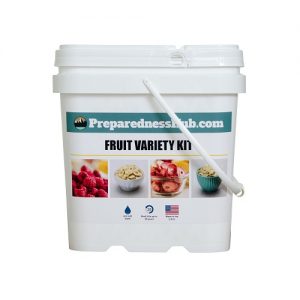
When you hear the word “redundant,” you rarely think of anything good. Normally, this word is saved for things that waste your time and cause you to do the same thing twice. While this is true in some cases, redundancy in the world of survival isn’t only recommended, it’s required.

Take for example Teddy Roosevelt. Our future 26th president needed his glasses to see clearly, especially when in battle. Instead of trusting fate that his glasses would remain on his face and in tact, he often rode into battle with a dozen or more pairs of his glasses on his person, including at least one pair sewn into his hat! The battle at San Juan would have gone very differently for Roosevelt if he had brought only one pair, as his Rough Riders would have had a nearly blind leader sending them into battle.
The saying “Two is one and one is none” comes from the Navy Seals. This idea simply put means that only having one of something is the same as not having it at all and having two of any item is the same as what you think having one means. This applies to plans, supplies, weapons, and even clothing. If you have a single knife with you and you lose or break it, you might as well have not had it to begin with. Having a backup means that the inevitable loss or breakage won’t slow you down.

Having one of something important means you’re playing against fate to keep it working, and in a survival situation there’s no hardware or sporting goods store to go to for a replacement.
This doesn’t mean you need to have two of every single item you carry, but instead you need to build in redundancy for items that are vital to your survival. For example, you should have at least two knives with you at any time. This means if one breaks you have another close at hand. In your Bug Out Bag (BOB) you should have at least two fire-starting tools, and ideally 3 or more. Speaking of your BOB, you should have at least 2 compasses and maps as well as two or more flashlights…you get the idea.
Sure, this adds extra weight to your every day carry and bug out bag, but that added weight can be a real lifesaver in a survival situation. So how do you decide what to double up on and what to risk with only one? Think of the items you need to survive. What are the bare essentials that if gone, would make your survival substantially more difficult if not impossible? Compasses, knives, guns, and water are some key areas but what you double up on is really up to you.

One key to doubling up on essentials is where they’re packed. It’s not smart to place all three or four fire starters into a single pouch on your BOB. If something happens to that pouch they’re all gone. Spread your duplicates out between yourself and your bag. Keep your knives in different pockets, and pack your maps in different sections of your bag.
Redundancy in prepping and survival is vital to being successful. While you are adding weight and cost to your prep, there’s a reason people as survival-ready as the Marines coined this motto, and it’s not because they like to carry extra weight.
Don’t stop with supplies however. IF you have a Get Out of Dodge (GOOD) plan, you should have a backup plan, too. If you’ve come up with a solid home defense strategy in the case of robbery or looting, you better double that up, too. Think about what items and plans you have that if lost, would ruin you without a backup and focus there. By doing this you won’t be guaranteed to be safe and sound, but you’ll do your very best to stack luck in your favor, and in the end that’s all you can really do.

 Freeze-dried Fruit Variety Kit
Freeze-dried Fruit Variety Kit
1 pings
[…] with the adage 'Two is one and one is none.' Two is One and One is None: The Art of Redundancy http://www.survivalbased.com/survival-blog/7186/two-is-one-and-one-is-none-the-art-of-redundancy/ Best regards, Bob googletag.cmd.push(function() { googletag.display('Btf_300x250_1'); […]